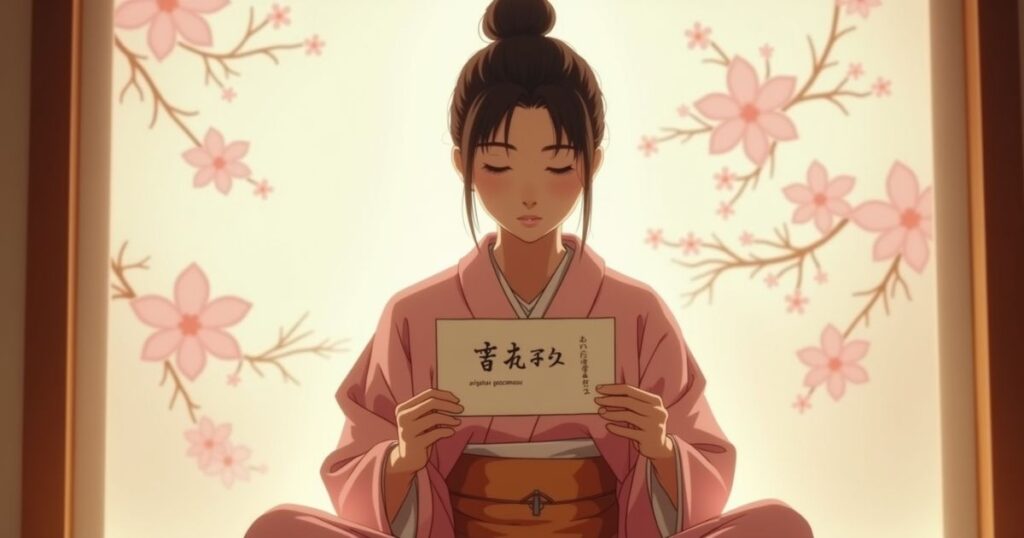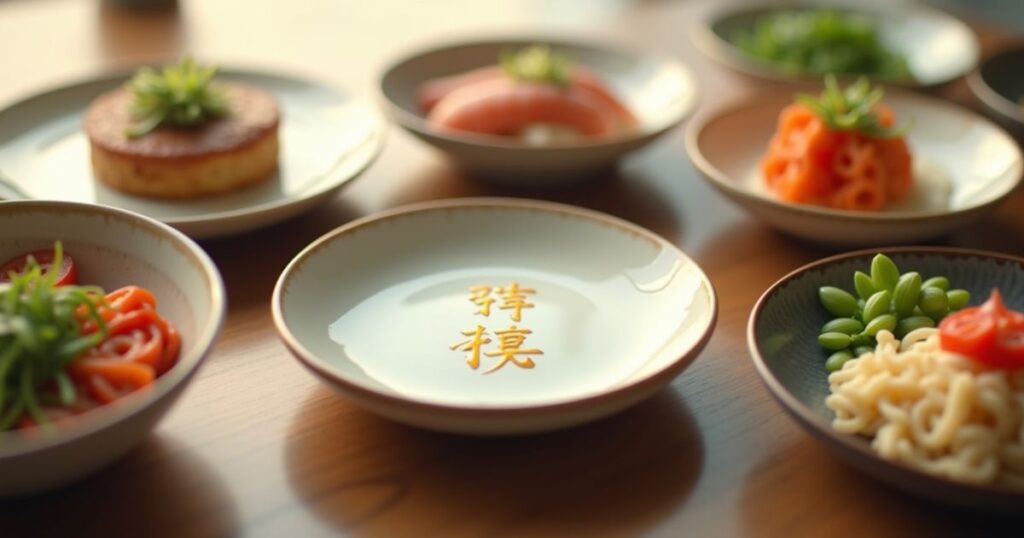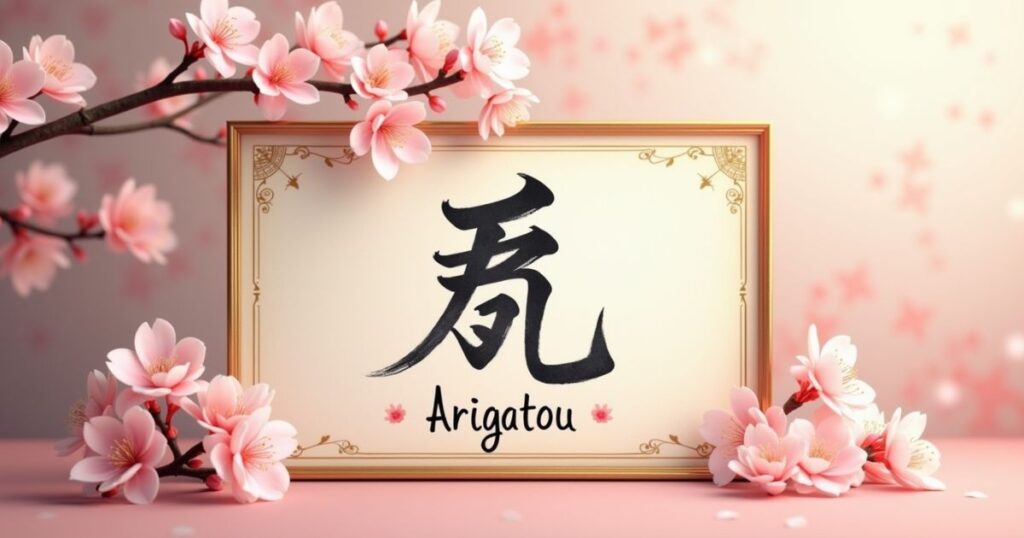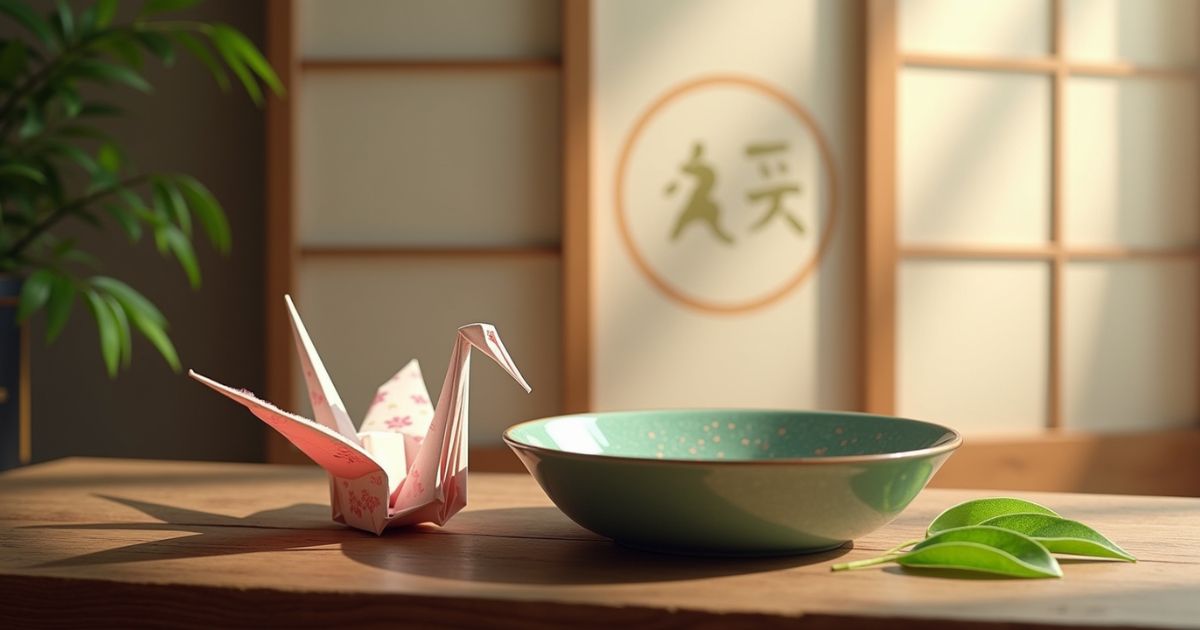Saying thank you in Japanese is an important part of the culture. It shows respect, kindness, and good manners. People in Japan use different words depending on who they are speaking to. Knowing the right way to say helps you fit in and show politeness. There are formal and informal ways. For example, thank you in Japanese formal thank you is “arigatou gozaimasu.
When you want to say thank you so much in Japanese, you can say “doumo arigatou gozaimasu.”If you’re with friends, you might use a more casual way. The thank you in Japanese informal version is just “arigatou.” Want to learn how to say thank you in Japanese the right way? This guide is perfect for you. We’ll help you understand every way to say thankyou in Japanese in real-life situations. Let’s get started!
How to say Thank you in Japanese in every Situation
Knowing how to say Thank You in Japanese is very important. It helps you show respect in every situation. Whether it’s formal or casual, Thank You in matters a lot. A simple Thank You in can leave a strong, kind impression.
In formal meetings, always use a formal Thank You in like Arigatou gozaimasu. With friends, you can use a casual Thank You in like Arigatou. In every situation, picking the right Thank You in shows good manners and builds better relationships.
Thank You in Japanese Formal
Saying Thank You formal style shows deep respect. In business meetings or with elders, using formal phrases is important. You can say Arigatou gozaimasu or Dōmo arigatō gozaimasu. These are polite and respectful ways. Thank You formal speech creates a good and lasting impression every time.
- ありがとうございます (arigatou gozaimasu): Most common and polite way to say “thank you.”
- 誠にありがとうございます (makoto ni arigatou gozaimasu): Deeply formal “thank you very much” used in business.
- 感謝しております (kansha shite orimasu): Very respectful, often used in written or business communication.
- 御礼申し上げます (orei mōshiagemasu): Extremely formal, used in speeches or letters of thanks.
- 厚く御礼申し上げます (atsuku orei mōshiagemasu): Formal phrase meaning “my deepest thanks.”
- 心より感謝申し上げます (kokoro yori kansha mōshiagemasu): “I express my heartfelt gratitude” — very sincere and formal.
- 深謝いたします (shinsha itashimasu): Rare and deeply formal, used in formal business or ceremonial occasions.
- ありがとうございました (arigatou gozaimashita): Past-tense formal thank you, used after a favor has been received.
- 恐れ入ります (osore irimasu): Extremely humble “thank you” used in high-level polite speech.
- ご協力ありがとうございました (go kyōryoku arigatou gozaimashita): “Thank you for your cooperation” — formal business setting.
- ご対応ありがとうございます (go taiō arigatou gozaimasu): “Thank you for your response or handling” — polite email/formal speech.
- ご清聴ありがとうございました (go seichō arigatou gozaimashita): “Thank you for listening” — often used in speeches or presentations.
- ご理解いただきありがとうございます (go rikai itadaki arigatou gozaimasu): “Thank you for your understanding” — common in polite conversation.
- ご指導ありがとうございます (go shidō arigatou gozaimasu): “Thank you for your guidance” — used with mentors/superiors.
- ご尽力ありがとうございます (go jinryoku arigatou gozaimasu): “Thank you for your efforts” — formal and respectful.
- 感謝の気持ちでいっぱいです (kansha no kimochi de ippai desu): “I am full of gratitude.”
- 常に感謝しております (tsuneni kansha shite orimasu): “I am always thankful” — used for continuing gratitude.
- 本当にありがとうございました (hontō ni arigatou gozaimashita): “Truly, thank you very much” — heartfelt and formal.
- この度はありがとうございました (kono tabi wa arigatou gozaimashita): “Thank you for this time” — formal closing expression.
- 感謝申し上げます (kansha mōshiagemasu): Very polite, business or ceremonial setting.
- ご厚意に感謝いたします (go kōi ni kansha itashimasu): “Thank you for your kindness” — deeply respectful.
- ご高配に感謝申し上げます (go kōhai ni kansha mōshiagemasu): “Thank you for your consideration” — often written or formal.
- 日頃より感謝しております (higoro yori kansha shite orimasu): “Thank you for your continued support.”
- お力添えありがとうございます (o chikara zoe arigatou gozaimasu): “Thank you for your assistance.”
- 丁寧にありがとうございます (teinei ni arigatou gozaimasu): “Thank you for your politeness.”
- ご愛顧ありがとうございます (gofio irrigator gozaimasu.In): “Thank you for your patronage” often seen in business.
- ご対応誠にありがとうございます (go taiō makoto ni arigatou gozaimasu): “Thank you sincerely for your response.”
Read Also: Top 100+ Thoughtful & Short Farewell Wishes On Cake
Informal Thankyou in Japanese

Thank You in Japanese informal style is used with friends and family. A simple Arigatou is enough in casual conversations. It sounds friendly and relaxed. Informal Thankyou in Japanese helps you connect easily with close people. Use it in daily talks, messages, and casual meetings for a warm touch.
- ありがとう (arigatou): Simple “thank you” used with friends or people close to you.
- サンキュー (sankyuu): Borrowed from English “thank you,” super casual slang among youth.
- どうも (dōmo): Very short “thanks,” friendly and casual in tone.
- ありがとね (arigato ne): Casual and warm “thanks,” adds friendliness or affection.
- ありがと〜 (arigato~): Informal and drawn out — shows cuteness or lighthearted vibe.
- 助かった (tasukatta): “That helped me” — casual way to say thanks for assistance.
- 感謝! (kansha!): Just “gratitude!” — quick and casual way to show thanks.
- ありがとさん (arigato-san): Informal, old-school, often used by older people.
- ありがとな (arigatona): Super casual and often used among close male friends.
- 本当ありがと (hontō arigato): “Really, thanks!” — warm and casual tone.
- ありがとうな〜 (arigatou na~): Casual and affectionate “thanks” with friendly energy.
- マジでありがと (maji de arigato): “Seriously, thanks!” — very casual, often among teens.
- サンクス! (sankusu!): Cool, modern “thanks!” in a Western-influenced tone.
- めっちゃ助かった (meccha tasukatta): “That really helped a lot!” — friendly gratitude.
- ありがと、ホントに (arigato, honto ni): “Thanks, really!” — heartfelt but informal.
- あざす (azasu): Super slangy way to say thanks, mostly among youth or in texting.
- ありがとっ! (arigato!): With excitement — fun and casual way to say thanks.
- ほんまありがとう (honma arigatou): Kansai dialect for “really, thanks!” — regional flavor.
- いや〜助かったよ (iya~ tasukatta yo): “Whew, you saved me” — very casual gratitude.
- まじありがとー (maji arigato~): “Really, thank you!” — chill and expressive.
- 助けてくれてありがと (tasukete kurete arigato): “Thanks for helping me” — informal tone.
- めちゃありがと (mecha arigato): “Super thanks!” — youthful and friendly.
- 感謝してるよ (kansha shiteru yo): “I’m thankful” — personal but still relaxed.
- 手伝ってくれてありがと (tetsudatte kurete arigato): “Thanks for helping out” — casual expression.
- いつもありがと (itsumo arigato): “Thanks as always” — warm and familiar.
- 助かるわ〜 (tasukaru wa~): “That’s helpful!” — friendly and casual.
- どうもね (dōmo ne): Chill and light “thanks” — polite but informal.
Thank You for the Food in Japanese

After eating, it is polite to say Thank You in Japanese for the food. People often say Gochisōsama despite to show gratitude for a meal. It shows respect for the person who cooked. Thank You for meals is a beautiful part of their culture and manners.
- ごちそうさまでした (gochisōsama deshita): Said after finishing a meal — most common food thank you.
- 美味しかったです (oishikatta desu): “It was delicious” — polite but simple compliment.
- ごちそうさま (gochisōsama): Casual form of thanking for the meal.
- 食事ありがとう (shokuji arigatou): “Thanks for the meal” — casual and direct.
- 料理ありがと (ryōri arigato): “Thanks for the cooking” — informal, used with close people.
- おいしかった〜 (oishikatta~): “Yum, that was good!” — fun and informal.
- 最高の食事ありがとう (saikō no shokuji arigatou): “Thanks for the amazing meal.”
- ご飯ありがとう (gohan arigatou): “Thanks for the food” — very casual.
- ごちそうさまでした〜 (gochisōsama deshita~): Drawn-out version — shows extra joy or appreciation.
- ごちでした! (gochi deshita!): Slangy way of saying “Thanks for the treat.”
- ご馳走さま! (gochisōsama!): Short, excited food thanks.
- 作ってくれてありがとう (tsukutte kurete arigatou): “Thanks for making the food.”
- 美味しいご飯ありがとう (oishii gohan arigatou): “Thanks for the tasty meal.”
- すごく美味しかったよ (sugoku oishikatta yo): “That was really delicious.”
- 食べ物に感謝! (tabemono ni kansha!): “Grateful for the food!”
- ディナーありがとう (dinā arigatou): “Thanks for dinner!” — modern and casual.
- 手料理ありがとう (teryōri arigatou): “Thanks for the homemade food.”
- ごちそうありがとね (gochisō arigato ne): “Thanks for the feast” — relaxed tone.
- 食事に感謝します (shokuji ni kansha shimasu): “Thank you for the meal” — slightly formal.
- 本当に美味しかった (hontō ni oishikatta): “It was truly delicious.”
- 今日のご飯最高! (kyō no gohan saikō!): “Today’s meal was the best!”
- また食べたい! (mata tabetai!): “I want to eat that again!”
- お腹いっぱい、ありがと (onaka ippai, arigato): “I’m full, thanks!”
- いい食事をありがとう (ii shokuji o arigatou): “Thanks for the lovely meal.”
- 朝ごはんありがとう (asagohan arigatou): “Thanks for breakfast.”
- 昼ごはんありがとう (hirugohan arigatou): “Thanks for lunch.”
- 夕飯ありがとね (yūhan arigato ne): “Thanks for dinner.”
Thank You in Japanese for the Compliment

When someone praises you, replying with Thank You in for the compliment is polite. You can say Humite karate irrigator. It shows your appreciation warmly. Compliments are handled with humility in Japan. Saying Thank You after a compliment keeps conversations respectful and positive every time.
- 褒めてくれてありがとう (humite karate irrigator): “Thank you for the compliment.”
- 恥ずかしいけど嬉しい (hazukashii kedo ureshii): “I’m shy, but happy to hear that.”
- 褒め言葉に感謝 (homekotoba ni kansha): “Grateful for your kind words.”
- 褒めてくれて嬉しい (homete kurete ureshii): “Happy you noticed me.”
- そう言ってくれてありがとう (sō itte kurete arigatou): “Thanks for saying that.”
- 励みになります (hagemi ni narimasu): “That motivates me.”
- 優しい言葉ありがとう (yasashii kotoba arigatou): “Thanks for the kind words.”
- 認められて嬉しいです (mitomerarete ureshii desu): “I’m happy to be recognized.”
- いい気分になったよ (ii kibun ni natta yo): “That made my day better.”
- 褒めてもらえて幸せ (homete moraete shiawase): “I feel lucky to get that compliment.”
- 優しいね、ありがとう (yasashii ne, arigatou): “You’re kind, thank you.”
- あなたに褒められて光栄 (anata ni homerarete kōei): “Honored by your words.”
- 気づいてくれて嬉しい (kizuite kurete ureshii): “Thanks for noticing.”
- お世辞でも嬉しい! (oseji demo ureshii!): “Even if it’s flattery, I’m happy!”
- そんなふうに言ってくれて感謝 (sonna fū ni itte kurete kansha): “Thanks for saying it that way.”
- なんて優しいの (nante yasashii no): “You’re too sweet.”
- 覚えててくれてありがとう (oboetete kurete arigatou): “Thanks for remembering.”
- 反応が嬉しかった! (hannō ga ureshikatta!): “Your reaction made me happy!”
- 力になった言葉だよ (chikara ni natta kotoba da yo): “Your words gave me strength.”
- そんなこと言われたら照れる (sonna koto iwaretara tereru): “I’m blushing from that!”
- ポジティブな言葉ありがとう (pojitibu na kotoba arigatou): “Thanks for the positivity.”
- 褒められて安心した (homerarete anshin shita): “Relieved to be complimented.”
- 優しいコメントありがとう (yasashii komento arigatou): “Thanks for the sweet comment.”
- それを聞けてよかった (sore o kikete yokatta): “Glad to hear that.”
- 元気出たよ、ありがとう (genki deta yo, arigatou): “You cheered me up, thanks.”
- 嬉しい言葉だった (ureshii kotoba datta): “That was a lovely thing to say.”
- 勇気づけられたよ (yūki zukerareta yo): “That gave me courage.”
FAQ’s
What is the most common way to say Thank You in Japanese?
The most common way to say Thank You is Arigatou gozaimasu. It’s polite and used in everyday situations with strangers or superiors.
How do you casually say Thank You in Japanese?
To say Thank You casually, just say Arigatou. It’s perfect for friends, family, or people close to you.
Is it okay to use domo as Thank You in Japanese?
Yes, Domo is a very short and casual way to say Thank You. It’s fine in relaxed situations but avoid it with elders or in formal settings.
What do you say after eating to show Thank You in Japanese?
After eating, people say Gochisousama deshita to show Thank You. It means thanks for the meal and shows good manners.
Can you say Thank You in Japanese with slang?
Yes, young people often say Sankyuu or Azasu as slang for Thank You. These are very casual and mostly used with friends or in messages.
Conclusion
Learning how to say Thank You in Japanese is a great way to show respect and kindness. Whether you say Thank You in Japanese in formal or use a casual style, it matters a lot. If you want to be extra polite, say thank you so much in Japanese like Dōmo arigatō gozaimasu.
In daily life, you can also use Thank You in Japanese in formal ways with friends. Simple phrases like Arigatou make conversations warm and friendly. If you are wondering how to say thank you in Japanese quickly, start with small, easy words. Mastering thankyou in Japanese shows good manners and cultural appreciation. No matter where you are, remembering a small Thank You makes every relationship stronger and more respectful.

